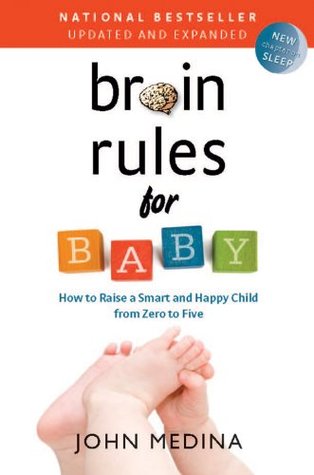More on this book
Community
Kindle Notes & Highlights
by
John Medina
Started reading
May 22, 2025
They don’t have all of the keys that can unlock their potential; that’s why they need parents.
the type of play that gives all the cognitive benefits is a type that focuses on impulse control and self-regulation
Tools of the Mind: Mature dramatic play
The ideas for Tools of the Mind come from Russian psychologist Lev Vygotsky,
He predicted that the ability of the under-5 crowd to engage in imaginative activities was going to be a better gauge of academic success than any other activity
The reason, Vygotsky believed, was that such engagement allowed children to learn how to regulate their social behaviors.
Vygotksy’s followers showed that children acting out imaginative scenes controlled their impulses much better than they did in non-MDP situations.
A play plan
This announces in explicit terms what the activity du jour will be: “I am going to have tea with my dollies at the zoo,” or “I am going to make a Lego castle and pretend I’m the knight.”
Practice pretending
The kids receive direct, open-ended instruction about the mechanics of pretending!
“I’m pretending my baby is crying. Is yours? What should we say?”
the children have a short “learning conference” with the instructor, listing what they experienced and learned during the period.
One big playroom
4. Praise effort, not IQ
effort is in part the willingness to focus one’s attention and then sustain that focus. Effort also involves impulse control and a persistent ability to delay gratification.
Kids praised for effort complete 50 percent more hard math problems than kids praised for intelligence.
Little Ethan quickly learned that any academic achievement that required no effort was the behavior that defined his gift.
Quite simply, Ethan quit trying.
What happens when you say, “You’re so smart”
First, your child begins to perceive mistakes as failures.
Second,
she becomes more concerned with looking smart than with actually learning something.
Third,
less willing to make an effort. Such kids have a difficult time admitting errors.
Children with a growth mindset
see mistakes simply as problems to be solved.
A 13-month-old child can remember an event a week after a single exposure.
a year and a half, she can imitate an event four months after a single exposure.
Those students who had been exposed to an “elderly” mix of words took almost 40 percent longer to walk down the hall than those who had been exposed to “random” words.
To cite Bargh’s clinical observation, these words “activated the elderly stereotype in memory, and participants acted in ways consistent with that activated stereotype.”
What you allow into your child’s brain influences his expectations about the world, which in turn influences not only what he is capable of perceiving but his very behavior.
TV can lead to hostility, trouble focusing
TV also poisons attention spans and the ability to focus,
Just having the TV on while no one is watching—secondhand exposure—seemed to do damage, too, possibly because of distraction.
The brain loves exercise
No two brains develop at the same rate
Developmental psychologist Jean Piaget
came up with four phases of cognitive development in kids, which he called sensorimotor, preoperational, concrete operational, and formal operational.
Follow-up work revealed that, even within a given category, children go through developmental stages at their own pace.
or repeat the same stage several times in a row.
Tufts University, has divided overachieving moms and dads into categories. Four of them are: •
Gourmet parents. These parents are high achievers who want their kids to succeed as they did.
College-degree parents. Your classic “hot-housers,” these parents are related to Gourmets but believe that the sooner academic training starts, the better.
Outward-bound parents. Wanting to provide their kids with physical survival skills because the world is such a dangerous place, these parents are often involved in the military and law enforcement.
Prodigy parents. Financially successful and deeply suspicious about the education system, these parents want to guard their kids against the negative effects of schooling.
Regardless of category, hyper-parents often pursue their child’s intellectual success at the expense of their child’s happiness.
1. Extreme expectations stunt higher-level thinking
2. Pressure can extinguish curiosity
Continual anger or disappointment becomes toxic stress


